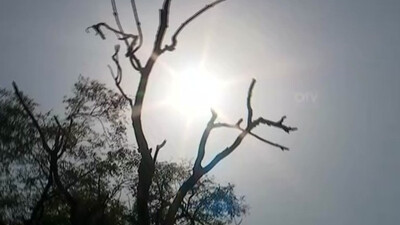Recommended Stories
Tests showed that the rock contained ammonia which is made up in part of nitrogen, and that contains DNA and proteins - the building blocks of life.
It adds weight to the theory that life on the planet has come from somewhere else entirely, the Daily Mail reported.
Some scientists believe that Earth was not able to provide all the basic molecules needed to allow primitive life form to develop.
In the latest experiment, a team of researchers from Arizona State University and the University of California, Santa Cruz, carried out tests on 4g of rock extracted from the meteorite, called Grave Nunataks 95229. It was found in Antarctica in 1995.
The researchers found that there were large amounts of hydrocarbons but also plentiful supplies of ammonia.
"Given that meteorites and comets have reached Earth since it formed, it has been proposed that the exogenous influx from these bodies provided the organic inventories necessary for the emergence of life," they said.
Meteorites have been of interest to the scientific community since the 19th century when it was ascertained they contained chemicals which could only be formed in cold temperatures, as well as those which had been altered by heat.
The theory that has developed is that asteroids in the the Asteroid Belt between Mars and Jupiter may have produced smaller meteorites which have shot off into space and landed on Earth.
"This has implications for how our solar system and possibly other solar systems formed and how they evolved," said Justin Simon, a former University of California post-doctoral fellow who led the research.
"These primitive meteorites are like time capsules, containing the most primitive materials in our solar system.
"They recorded the history of the solar system before any of the planets formed, and were the first solids to condense out of the gaseous nebula surrounding our protosun."
Dr Caroline Smith, a meteorite expert at London`s Natural History Museum said the discovery of nitrogen was important.
He said: "One of the problems with early biology on the early Earth is you need abundant nitrogen for all these prebiological processes to happen - and of course nitrogen is in ammonia.












